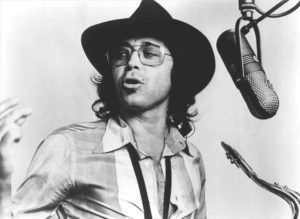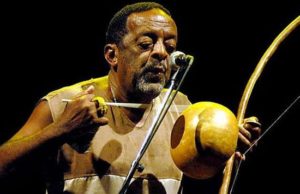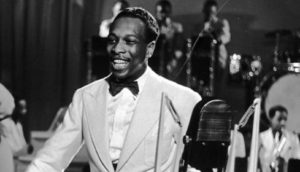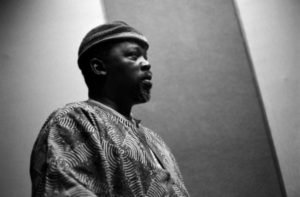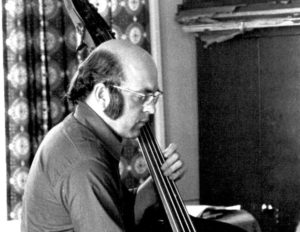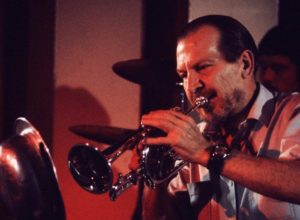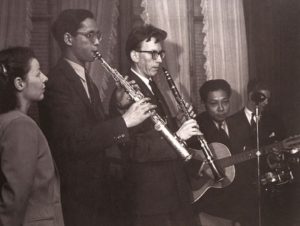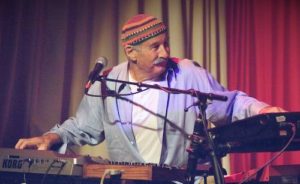Hermeto Pascoal
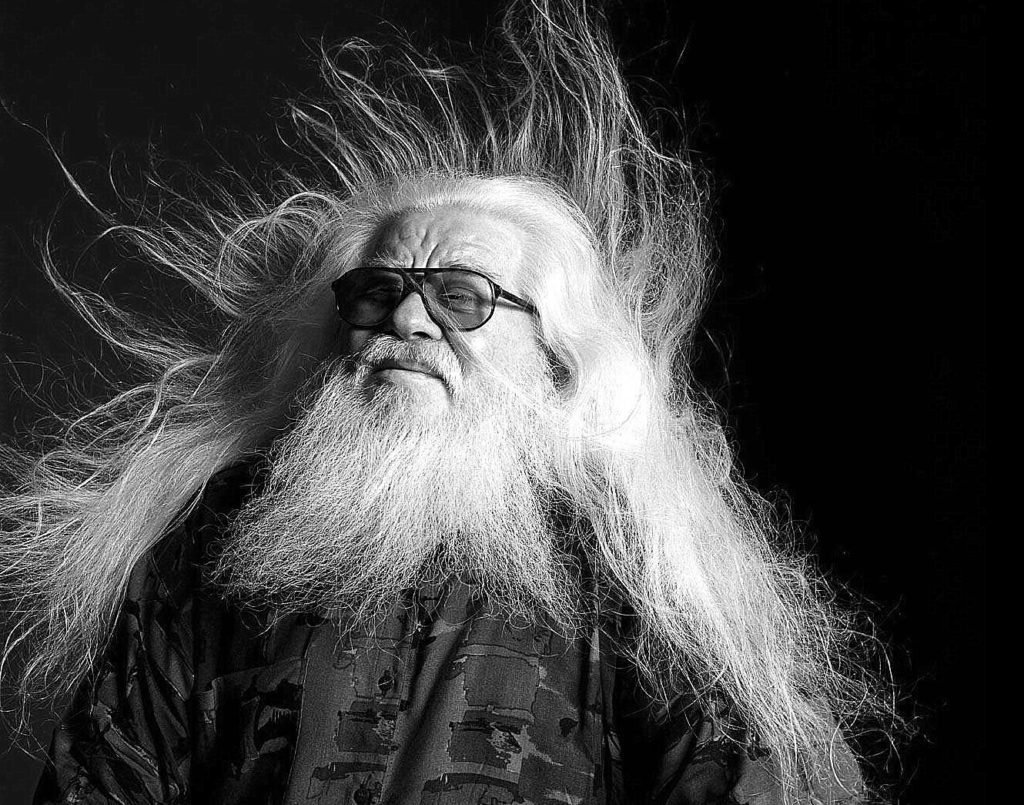
Hermeto Pascoal (born 1936) was born in Lagoa da Canoa, a small muncipality near the Atlantic coast, which was still without electricity at the time. He played music from an early age with his father and brother, who were both musical. His first instrument was accordion, and he played forrò at local dances. At 20, he was invited to play at the Mauá Radio Station in Rio de Janeiro , where he had the opportunity to learn piano on the station instrument. He was soon playing piano professionally with the violinist Fafa Lemos at a club in Copacabana.
Together with Airto Moreira (on drums) and bassist Humberto Clayber (also on harmonica), he formed the Sambrasa Trio, which recorded one album, Em Som Major, in 1965. Moreira and Pascoal continued to work together in the Quarteto Novo, where the multi-instrumentalist Pascoal also proved himself to be an excellent flautist. His bandmates, Moreira, Theo de Barros and Heraldo do Monte were all based in Sao Paolo, so Pascoal relocated in 1966. Moreira and his wife, singer Flora Purim, soon moved to New York, and it was an invitation from them
that saw him move to USA. He quickly became an in demand session musician, contributing to albums by Donald Bryd, Duke Pearson, Airto Moreira and Miles Davis in 1970 alone. Pascoal was an influential figure, cited by many Brazilian musicians as an inspiration, including Flora Purim, Milton Nascimento and Airto Moreira among others.
From the late 1979s, he has led his own sextet, performing at countless prestigious jazz clubs and festivals. His music would be quixotic in its broad approach to elements from jazz, rock, folk music and the avant garde, were it not for the passion and virtuosity, which which it is played. Like Pascoal himself, who has recorded on accordion, piano, flute, bass, guitar, saxophone and many invented instruments, he expects his band members to be able to perform on multiple instruments.
Key Recordings:
With Airto Moreira
Hermeto Pascoal (Muse 1972) released on CD as Brazilian Adventures
Slaves Mass (Warner 1977)
